Affiliates
Received PhD from UM
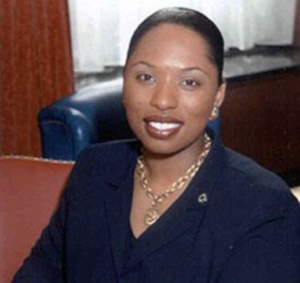
Dr. TaShara C. Bailey’s professional career is dedicated to increasing institutional diversity among administrators, faculty, staff, and students. She specializes in program evaluation and assessment of diversity initiatives spearheaded by those in the fields of science, technology, engineering, and mathematics including business (STEM-B). During her tenure as a scholar-practitioner in higher education, Bailey has championed organizational change in areas of diversity and inclusion by focusing on broadening STEM-B participation of historically under-represented groups. As a strategic leader, Bailey has demonstrated a clear passion for the advancement of program evaluation of interventions designed to diversify the scientific and technological workforce. Her extensive experience with diversity initiatives in institutions of higher learning includes teaching, academic advising, retention programs, and alumni relations.
In addition, Bailey has worked collaboratively with cross-functional teams in elementary and secondary schools, with community organizations, nonprofit medical research organizations, and governmental agencies. Considering her experience during her undergraduate and graduate education, she has more than a decade of involvement in successful recruitment, retention enrollment management, and strategic planning. During these years, she was involved in the administration of summer programs, staff management, program evaluation and assessment, research and analysis, and coaching. Throughout, her focus has been on implementing STEM-B interventions for diverse populations.
In Maryland, Bailey has been actively engaged in and supported by the NIH-sponsored MARC U*STAR program and NSF-sponsored LSAMP program at the University of Maryland, Baltimore County and UMBC’s Meyerhoff Scholars Program. She was the NSF-sponsored USM’s PROMISE AGEP-T STEM Postdoctoral Fellow at the UMBC and Coppin State University in the Department of Psychology. As a fellow, she also actively participated in the formative and summative assessments of the Howard Hughes Medical Institute-funded Meyerhoff Adaptation Program. While at the University of Michigan she was an engaged administrator and researcher in the Detroit Area Pre-College Engineering Program in the College of Engineering, the Diversity Research and Policy Program in the National Center for Institutional Diversity, the LEAD Summer Business Institute in the Stephen M. Ross School of Business, and numerous diversity initiatives for undergraduates, graduates, and alumni sponsored by the Rackham Graduate School.
Dr. TaShara Bailey is the Director of Old Dominion University (ODU) First Star Academy, effective July 25, 2022. TaShara joins ODU from the University of Maryland, Baltimore where she served as Director of STEM Curriculum and Director of Programs for the CURE Scholars Program. Developing STEM curricula and related materials for student success, analyzing, and modifying instructional activities and strategies, organizing, and coordinating activities for middle and high school scholars, and collecting, managing, and interpreting data for reporting purposes were among the responsibilities of the position. Prior to this role, TaShara was a Coordinator for the CURE Scholars Program and Adjunct Faculty in the Graduate School at the University of Maryland, Baltimore.
ODU First Star Academy is a collaboration between ODU and the City of Norfolk, to increase the high school graduation, post-secondary attendance rate and transition to adulthood of youth in the Hampton Roads foster care system. Currently there are fifteen First Star Academies across the nation including Arizona State University, UCLA, California State University, San Bernadino, Kent State University, Rutgers University, and the University of Miami.
Bailey is a native of Grand Rapids, Mich., and a proud alumna of the Grand Rapids public schools. She pursued graduate studies at the University of Michigan in Ann Arbor, where she earned a PhD in higher education with a concentration in organizational behavior and management as well as a master’s degree in education studies with elementary teacher certification. Bailey earned a BS degree, cum laude, in agricultural and biosystems engineering with waste management certification from North Carolina Agricultural and Technical State University.
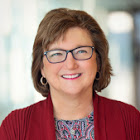
Victoria Bigelow, PhD, is the evaluation coordinator for the Center for Education Design, Evaluation, and Research (CEDER) in the U-M School of Education. At CEDER, Dr. Bigelow provides evaluation plans to faculty and community partners seeking funding from federal, state, community, and private sources. She oversees a team of full and part-time staff, including professional evaluators and students, who work on a large portfolio of projects of various sizes, scopes, and types of partnerships. She teaches a seminar for graduate-level evaluation interns in the School of Education. Dr. Bigelow earned her doctoral degree from the U-M’s Center for the Study of Higher and Postsecondary Education and has worked in the field of evaluation for over a decade. She is a member of the American Evaluation Association and the Michigan Association for Evaluation, where she serves on the board of directors. Dr. Bigelow is a graduate of the PhD program at the University of Michigan School of Education’s Center for the Study of Higher and Post Secondary Education. Dr. Bowman was a member of her doctoral committee. Prior to her work in CEDER, Dr. Bigelow was the Coordinator for Certification Plus Master’s Program and Assistant Director of the Master in the Art of Teaching Program at Marygrove College, where she was also adjunct faculty in music and education. Dr. Bigelow also holds an advanced degree in music and serves as the in-kind arts coordinator for Flint Community Schools.

Julio Cardona, PhD is a Diversity, Equity, and Inclusion Lead at General Motors. In this role, Julio influences and drives DEI action plans and global strategies focused on increasing diverse representation and retention by driving adoption of equitable and inclusive norms.
In his career that spans over 20 years, Julio has been recognized nationally for efforts to foster an inclusive organizational climate and culture utilizing data-driven solutions. Initiatives he has led with award-winning teams have been featured in the New York Times, Wall Street Journal, Inc. Magazine, The New Yorker, and the National Public Radio. Julio was recently awarded Top DEI Global Champion by the National Diversity Council.
Julio holds a Ph.D. in Higher Education from the University of Michigan, Ann Arbor, a
Master’s degree in Education from Stanford University, and a Bachelor’s degree in Humanities and Communications from California State University, Monterey Bay.
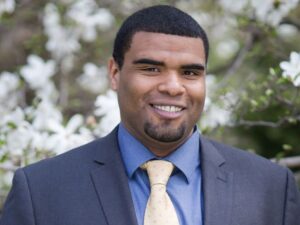
James M. Ellis, Ph.D. is an Assistant Professor at the University of Michigan School of Social Work. His research investigates the degree to which microaffirmations and microaggressions promote or impede the college transition experiences of first-generation college students and undergraduate men of color. In addition to his scholarship, James has served in a variety of professional roles in partnership with programs and organizations dedicated to advancing educational opportunities for adolescents and young adults from racial-ethnic and socioeconomic marginalized backgrounds.
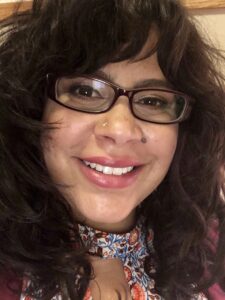
Gloryvee Fonseca-Bolorin recently completed a Ph.D. at the Center for the Study of Higher and Postsecondary Education, University of Michigan. Gloryvee drew upon longitudinal survey data funded by National Science Foundation and administered by The Center for Black Youth in Context to explore the social psychological experiences of Black and Latino students’ within predominantly White institutions. Building upon strength-based frameworks, her dissertation investigated how racial ethnic identity along with perceptions of the campus racial climate influenced students’ sense of belonging and college persistence. Specifically, Gloryvee’s project explored whether students’ beliefs and attitudes about their racial ethnic group may function as a moderator or protective factor in the face of racial ethnic discrimination and stigma within predominantly White educational contexts. At the University of Michigan’s Center for the Education of Women (CEW+), Gloryvee directs the Academic Coaching Program tailored for student caregivers and coordinates the Women of Color in the Academy Project, a network focused on addressing the challenges and issues uniquely faced by faculty women of color. Prior work experience includes the National Center for Institutional Diversity, Center for the Study of Black Youth in Context, and Rackham Graduate School.

Omari earned a B.S. in psychology from Howard University, a M.P.H. from The George Washington University, a M.A. and Ed.M. in Psychological Counseling from Teachers College Columbia University, and a M.S. in Psychology and a Ph.D. in Education and Psychology from the University of Michigan. His dissertation examined the relation between Black students’ social class identity and their psychological adjustment to predominantly White highly selective institutions. Omari also holds a certificate in French Language and Culture from the Université de Bourgogne (University of Burgundy) and participated in the Summer School on Black Europe in Amsterdam.
Omari has considerable experience with diversity, equity, and inclusion programs and initiatives. He served as a program assistant for pipeline research programs for students from underrepresented/racially minoritized groups at both the University of Miami and the University of Michigan. In his role as an Assistant Director for Diversity, Equity, and Inclusion at Northwestern University, Omari developed and implemented initiatives around inclusion, equity, and diversity for faculty at all levels. Omari joined Poly Prep Country Day School in Brooklyn, NY in the summer of 2021 as the Director for Diversity, Equity, Inclusion, and Belonging and is responsible for creating, fostering, leading, and advocating for the school’s diversity, equity, inclusion, and social justice programs and policies.

Kim Lijana, PhD, leads the University of Michigan’s Center for Educational Outreach. She is responsible for supporting and advancing U-Ms commitment to pre-college learners and under-served schools in the state of Michigan. Dr. Lijana is passionate about providing life-changing opportunities for students and has developed a strong track record for increasing post-secondary education access and success for low-income, first generation, and underrepresented students.

Dr. Christopher J. Nellum is the Executive Director of The Education Trust–West, a nonprofit education equity organization focused on educational justice and closing achievement and opportunity gaps for students of color and students from lower-income communities from preschool through college. He has led successful advocacy efforts to ensure equity in the K-12 accountability system, create a statewide cradle-to-career data system, address food insecurity for college students, and ensure that every high school senior completes a financial aid application before they graduate. Nellum regularly provides commentary for media outlets, including PBS NewsHour, EdSource, The Wall Street Journal, and NBC News.

Gordon Palmer will be joining the Department of Urban Higher Education as a Bridge to Faculty Fellow this Fall. He received his Bachelor of Arts degree in International Studies and Religion from Baylor University, a Masters degree in Higher Education from Miami University (in Ohio), and is receiving his PhD in Higher education and Psychology from the University of Michigan. His current work is supported by a Ford Foundation and the Institute for Research on Women and Gender at the University of Michigan.
His work is motivated by an effort to understand how Black people transform the places that they occupy into more just and compassionate places through meaning-making, cultural ideologies, compassionate relationships, and acts of justice. Gordon’s emerging program of research broadly focuses on 1) examining the sociopolitical development of Black urban residents—with a particular focus on Black women college and graduate students—through innovative critical qualitative placed-based methodologies and 2) examining how parents, mentors, and spirituality influence the well-being and persistence of Black peoples generally and Black university students specifically. He takes on this work as someone dedicated to ethical, rigorous, and reciprocal research practices aimed at transforming the extant higher education understanding of urban residing Black students in the US into one that is more emic and inclusive.
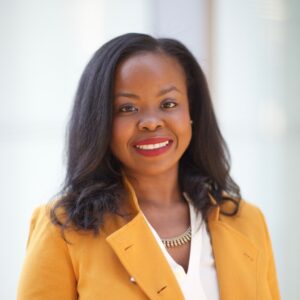
Dr. Kelly Slay is an Assistant professor of Higher Education and Public Policy in the Department of Leadership, Policy, and Organizations at Vanderbilt University’s Peabody College. Her research uses qualitative methodologies and critical policy analyses to examine how public policies and organizational structures shape access and success of students from minoritized backgrounds. Dr. Slay’s work broadly explores diversity and equity issues in higher education and is primarily focused in two areas: factors shaping Black students’ college choice, completion, and career trajectories and the use and implications of enrollment management policies (admissions, recruitment and financial aid) aimed at improving campus diversity. Two of Dr. Slay’s current projects explore the relationship between enrollment management practices in selective contexts and the college choice decisions and transition experiences of Black students and students from low-income backgrounds. She is also developing a project on the effect that COVID-19 has had on Black high school students’ college-going that was recently funded by the Spencer Foundation.
Before coming to Vanderbilt, Dr. Slay was an inaugural President’s Postdoctoral Fellow at the University of Maryland – College Park and a postdoctoral associate in the Center for Diversity and Inclusion in Higher Education. Drawing lessons from her personal background as a first-generation college student and professional experiences in public policy and college access, recruitment, and readiness programs, Dr. Slay is passionate about helping students pursue their educational and career goals. She received a Ph.D. in higher education with a concentration in public policy from the Center for the Study of Higher and Postsecondary Education at the University of Michigan.
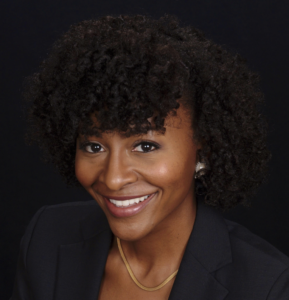
Dr. Krystal L. Williams is an Assistant Professor of Higher Education in the Educational Leadership, Policy and Technology Studies Department of The University of Alabama College of Education. Her research explores the use of public policies to promote college success for underrepresented students, with an emphasis on the interplay between policy initiatives and students’ various psychosocial factors. Recently, her work has focused on these issues as they relate to (1) broadening participation in science, technology, engineering and mathematics for underrepresented groups, and (2) reducing students’ economic and academic strains in college.
Prior to joining The University of Alabama, Dr. Williams was a Senior Research Associate at the United Negro College Fund Frederick D. Patterson Research Institute (UNCF FDPRI). She currently serves as a UNCF FDPRI Senior Research Fellow where she provides expertise to help shape policy-relevant research concerning Black education issues within K-12 and higher education. In addition, Dr. Williams was a former American Educational Research Association (AERA) Postdoctoral Fellow at Educational Testing Service. She also served as a Research Assistant at the University of Michigan National Center for Institutional Diversity, and an Institutional Research Analyst at Washtenaw Community College in Ann Arbor, Michigan. Dr. Williams was also an AERA Minority Dissertation Fellow in Education Research, an Institute for Higher Education Policy (IHEP) Academic Fellow, and a member of the Edward A. Bouchet Graduate Honor Society. Dr. Williams is a member of the American Educational Research Association (AERA), as well as the Association for the Study of Higher Education (ASHE). She attended the University of Michigan where she completed her doctoral studies in Higher Education and Public Policy in the Center for the Study of Higher and Postsecondary Education. She also attended Clark Atlanta University where she earned a BS and MS in mathematics and graduated valedictorian.
Other Affiliates

Minso Choi, also known as Minna, (she/her/hers) is an M.A. in Higher Education Administration alumnus. She is currently in a Ph.D. program at the Ohio State University studying Educational Psychology. Her main research interests are college students and their experiences with academic burnout along with academic engagement and mental wellbeing. Currently, she is a graduate teaching assistant and working on publishing her research. After graduating from her Ph.D. program, she aims to become a university faculty member.
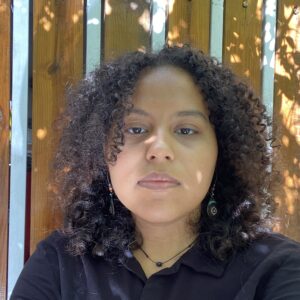
My name is Victoria King, and I am a senior at the University of Puerto Rico, Río Piedras Campus, where I am pursuing a bachelor’s in Social Work and a minor in Women and Gender Studies. As a minority student, I have continuously observed how research is crucial for social transformation, equality, and the dismantling of colonial structures. I became interested in research as a tool for decolonization, and began collaborating remotely with DRPP on the Broadening Participation in STEM project. Within the qualitative team, I am analyzing the challenges that minorities in STEM face and how support, representation, and resources affect their lives as college students. After graduation, I plan to continue working on projects that impact marginalized communities affected by austerity and inequity in Puerto Rico.
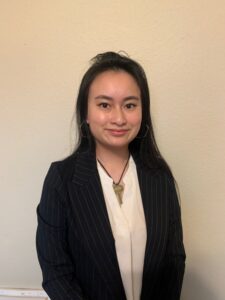
Jordan Peyton [ 游 敏 ] (she/they) is a Ph.D. student and Graduate Research Assistant for the LEARN-CS group at The Ohio State University in the Engineering Education Department. Currently, Jordan serves as a Research Project Coordinator for the Diversity Research and Policy Program (DRPP).
They have worked in K-12, Higher Education, Corporate DEI, and APIDA Nonprofits. Research interests include Minority Serving Institution (MSI) partnerships with Predominantly White Institutions (PWIs) in engineering spaces, undergraduate to graduate pathways for MSI students, and disaggregating the data in the APIDA umbrella. They intend to utilize her B.S. in Biological Systems Engineering from Kansas State University and background in multicultural student programming to continue innovating ways to support STEM students. They have previously obtained their Master of Arts in Higher Education with a concentration in Diversity and Social Justice at the University of Michigan’s Center for the Study of Higher and Postsecondary Education (CSHPE). Jordan worked in framework development and data collection and analysis as an MROP Graduate Research Fellow at the DRPP.
In their free time, you can find them spending time in Texas with family and friends, being in nature by hiking trails, and scoping out good eats.